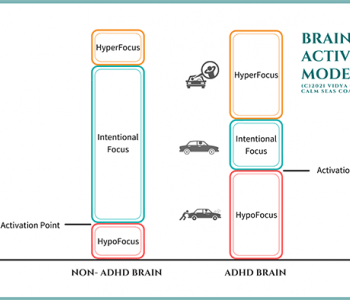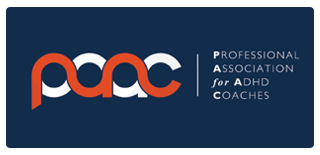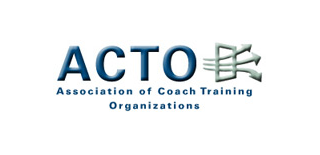Education is the Key to ADHD Coaching
ADDCA In The News | ADHD Education
October 5th, 2010 10:40 am ET.
by Jane Tolman of Albany ADHD Examiner
Education is key to ADHD coaching says top Albany ADHD coach:
“Education is key in helping patients with ADHD overcome challenges in their lives,” says David Giwerc, founder of the ADD Coach Academy (ADDCA), at 1971 Western Avenue, Albany, NY. “If a person doesn’t know which aspects of their behavior are affected by their ADHD, a coach can’t expect them to understand which behaviors they have the ability to change,” Giwerc said. “You don’t know ADHD until you know your own brand of ADHD.”
ADHD coaching is an alternative treatment sometimes used instead of, or in combination with, medication and therapy, to treat the symptom of ADHD, or Attention Deficit Hyperactivity Disorder. Coaching emphasizes education so that patients can learn about the individual traits of the disorder that are specific to their own personalities. This knowledge can help accelerate the development of personal coping strategies.
Giwerc himself has ADHD. He had two successful careers that left him bored and wanting more. Oddly enough, it was ADHD that challenged that boredom. When he began to research why there was not more attention being paid to adults with ADHD, it sparked a passion in him that had been missing in his prior working life. In 1998, together with his wife, Marla, they launched the ADD Coach Academy website (ADDCA). It is now the largest virtual ADHD coaching program in the world, and the only ADHD coaching program based in Albany. Several successful graduates of the academy remain in the Albany area.
ADHD coaches are trained to guide and support a person in overcoming the challenges of living with ADHD at work, school or home. Specifically, ADHD coaches help their clients:
- Create structures and tools to stay on track
- Improve organizing skills and design organizing systems
- Plan projects, get clear on tasks and manage time
- Increase self-awareness
- Set and reach their goals
- Improve crucial lifestyle habits such as diet, sleep, and exercise
- Improve relationship and communication skills
ADHD coaches are difficult to find, but there are coaches, for adults and children, in Albany. The ADD Coach Academy website is one place to start. You can sign up for their newsletter, read Giwerc’s blog, send an e-mail or just call the local Albany office at 518-482-3458. You can also sign up for a free ADHD success kit. Additionally, there is a Facebook page for the Academy where you can send an e-mail and read posts about coaching and available ADHD coaches.
For more information about ADHD Education and ADHD coach training, please go to: https://www.ADDCA.com
Article written by Jane Tolman of Albany ADHD Examiner

ADDCA Coach Graduate Andrew Lewis Recieves Top ADHD Blog Award
Announcements | Coaches in Action
Andrew Lewis, ACG, an ADHD coach in the United Kingdom and an alumnus of the ADD Coach Academy has been awarded the 2010 Top 20 Blog award for his outstanding contributions to educating the ADHD public with his internet platform: SimplyWellbeing ADHD Blog.
This award highlights the very best ADHD blogs as determined by the internet community. Medical Assistant Schools presents the Top Blog Awards, to recognize those bloggers who are not only blogging with great content, but also to acknowledge their outstanding contributions and resources to support those individuals seeking to learn more about ADHD.
Do You Really Know Your ADHD?
ADHD Education
ADHD is the most publicized and most understood disorder in the USA and maybe in the world. With all the media hype that is being disseminated to the public, there still are a number of negative messages that are clouding the truth about ADHD.
With 4% of the world population having ADHD and 85% of those cases being undiagnosed, we have a huge opportunity to improve peoples’ understanding of ADHD through education.
Despite all the validated scientific information and research being made available to the public, ADHD is still is poorly managed even by those who are diagnosed with it.
There is still a lack of health care professionals who are well versed in the diagnosis and treatment of ADHD.
Well trained ADHD Coaches can significantly improve the quality of life for ADDers by empowering them to learn about their unique brain wiring by exploring and discovering how their own ADHD manifests in different situations.
Simply ADHD Course - Living Successfully with ADHD
ADHD Education
The path to any success with ADHD begins with understanding your own ADHD. How and where it manifests so that you can learn and plan how to manage it. Step in to the Simply ADHD Course to awaken the Successful ADHDer in you or someone you love!
This course will provide you with proven tools and models that powerfully explain ADD/ADHD in everyday language. It will also help you identify how and where ADD/ADHD can impact daily living while also improving your ability to manage it more effectively, for an enhanced quality of life. To learn more, please go to: www.ADDCA.com
The Lens You Use to Observe Your ADHD
ADHD Education

A recent study published in the Journal of the American Medical Association, indicates that adults with ADHD might benefit from CBT (also referred to as talk therapy).
The most common treatment for adult ADHD is medications like Adderall and Ritalin. But medication isn’t always enough.
Dr. Steven Safren, the lead author on the study from Massachusetts General Hospital in Boston told Reuters Health: “Meds are effective in turning the volume down on symptoms, however usually they don’t do everything.”
A recent study published in the Journal of the American Medical Association, indicates that adults with ADHD might benefit from CBT also referred to as talk therapy.
Dr. John Piacentini, a psychiatrist at the University of California, Los Angeles who was not involved in the study, told Reuters Health: “CBT is based on the idea that what we think and how we interpret our environment affects our behavior (and) affects how we act and how we feel.”
The research team led by Dr. Safren divided 86 adults into two groups who had ADHD symptoms that had persisted despite medication.
- Patients in one group went to sessions for 3 months or 12 individual CBT sessions
- Patients in the other group focused on relaxation techniques, education about ADHD, and support during 12 scheduled sessions
Two thirds of the first group that participated in the 12 CBT sessions improved during their program and one-third of the second group receiving educational therapy and relaxation techniques improved during the course of their program.
The improvements made in both groups were maintained 9 months after treatment ended.
“That shows that teaching people with ADHD to change their way of thinking and their behavior can help them make real changes in their lives,” Piacentini said.
“The medication only works while you’re taking it,” he explained. “The benefits of CBT are that the patients in the study were learning techniques that they can use lifelong.”
The findings “represent a huge step forward in the psychosocial treatment research for adults with ADHD,” Dr. J. Russell Ramsay, the associate director of the University of Pennsylvania School of Medicine’s ADHD Treatment and Research Program, told Reuters Health.
To read the entire article go to:
www.ibtimes.com/contents/20100824/talk-therapy-meds-may-ease-adult-adhd.htm
Discomfort with Silence
ADHD Education
Lately, I have been observing people in conversations more than I ever have before; and what I have noticed is most people are very uncomfortable with silence.
Whether you are at a restaurant with friends, listening to a lecture or simply having a conversation with a friend, I sense there is an underlying pressure that most people feel to fill the space of silence. You perceive a void and feel responsible for creating some sort of response because the silence makes you squirm in your mind and body.
We as a human race are very uncomfortable with silence. Just check it out for yourself.
Sit in a quiet room, with a clock or watch that has a second hand. Of course the clock must be clearly in view, with no distractions and don’t say anything for thirty seconds. Just listen and be present with the silence permeating your presence.
Notice how long that small duration of time feels when there is total silence. How did it make you feel?
What did you notice? Where did your mind and thoughts go? What would happen if you extended it to one minute of silence?
People who regularly meditate often do it for thirty minutes to one hour a day. They claim it clears the fog in their mind and creates renewed energy. After doing this exercise, I think it will be come increasingly clear to you it takes discipline to sit still in silence.
I think the benefits to people with ADHD can be significant but learning to sit still with a physically and/or cognitively hyper active mind is quite challenging. You might want to start with learning to feel comfortable with silence.
Also, for those of you who have difficulty doing any kind of sitting in a traditional meditation style, there is always moving meditation which for me is a daily regimen of diverse, fun physical exercises where I often become hyper-focused.
Meditation does not mean you have to sit in with your legs crossed in a lotus position with your palms upright resting on your knees with a rigid posture. That simply did not work for me no matter how hard I tried. However, once I gave myself permission to open up my mind to other possibilities for accessing my silence, I found ways to use movement and exercise to access the creativity and energy located inside of me.
What’s your relationship with silence? How do you access it? Is your process helpful? How are you going to access your own silence?
What You Pay Attention to Grows
ADHD Education
This small statement is the foundation upon which I have built my most successful coaching principles. If you are not aware of what you pay attention to on a daily basis, you will not be aware of what is growing or not growing in your life.
Patterns of Thoughts
Over the last decade of coaching adults, many of them business entrepreneurs and executives with ADHD, I have consistently witnessed patterns of thoughts and beliefs to which they seem to cling.
In my experience, most adults with ADHD are not aware of the beliefs that dominate their lives. They are also not aware how these beliefs do or do not serve them well.
These same adults with ADHD are basically not aware of their thoughts because most of the time they are not paying attention to what they pay attention to in any given moment.
When I coach my clients, I watch their lives non-judgmentally, noticing a consistent pattern of beliefs and thoughts that are directing their lives. I view them from their perspective and what they truly desire in their lives.

Learning to Witness Your Thoughts
It is very important to learn to develop the skill of identifying your most dominant patterns of thinking during the course of a day, a week, or a month. When you learn this invaluable skill, you will be developing the life changing skill of becoming your own witness.
You will have the ability to dramatically improve the quality of your life. You will be able to trace back many of the actions you do or don’t take based on your newly identified thoughts. You have the power to choose what you will focus on and create in any given moment.
How Thoughts Affect Your Brain
It is also important to understand how the brain works in relation to the thoughts you create in your mind.
As the famous American writer, poet and philosopher, Ralph Waldo Emerson, stated: “The ancestor to every action is a thought.” When you can trace any action back to its original thought, you will discover the original source of that action.
It is vital that you understand how your thinking and beliefs can have an impact on the way your brain functions. Being aware of the dominant beliefs that guide your life is the key to understanding the chemistry that is created in your brain. This knowledge can be instrumental in empowering you take the first step towards positive change.
Your Brain Converts Electricity into Chemistry
Our brains basically work on electrical charges or currents. These charges are created by the strongest thoughts we consistently focus on in any given moment. If your strongest daily thoughts are negative they will create a negative electrical charge in your brain that eventually can be converted into a neurochemical called adrenaline.
Adrenaline is the neurohormone that is responsible for activating the “fight-or-flight” syndrome within your brain that eventually becomes strong emotions and physical reactions in your body. It can cause anxiety, helplessness, negative rumination and more.
Pay Attention to What You Are Paying Attention To
Understanding what you pay attention to and understanding how it can impact your internal chemistry is powerful knowledge that can be used to direct your thoughts and energy in a positive way. Fortunately, we have the ability to create consistent, dominant positive thoughts whenever we choose to do so.
The strongest positive beliefs we focus on can be transformed into a positive “feel good” neurotransmitter called serotonin. This is the chemical that is used in a class of medications called SSRI (Selective Serotonin Reuptake Inhibitors) and include medications like Zoloft, Prozac and others. These medications have been very effective in dramatically improving the lives adults, with ADHD, who are frequently diagnosed with co-occurring conditions such as mood and depressive disorders.

Memory is Powerful
To give you an example of how we all have the ability to manufacture serotonin in our brains all you have to do is remember a powerful memory of joy success, fulfillment from you past.
When you revisit that positive memory by pausing to pay attention to it and really take it in, you can relive the positive emotions and energy of that experience. So many people do not take the time to pay attention to past successes. They leave them buried in the depths of their subconscious.
Being aware of the dominant beliefs that guide your life most of the time is the key to also knowing what kind of electricity and chemistry you can create. It will also be instrumental in taking the first step towards positive change.
Pause and Observe Your Dominant Thoughts
A good coach works with his clients to empower them to identify the patterns of their most dominant thoughts and then challenges them to pause and observe them rather than just react to them. The coach questions his client about specific beliefs being conveyed in the coaching session and asks them: How is what you are paying attention to right now serving your desired goal?”
Disharmony in Your Body is the Prompt
A coach’s long-term goal for his clients is for them to learn how to pause and ask how any thought or belief is serving them when they feel something is out of harmony.
You will learn how to develop a system that will remind you to pause and question what you are focusing on in a specific moment in time. With enough practice and discipline you can learn to do this automatically. It takes a disciplined approach with prompts and reminders of what to do when our bodies are feeling something is not right. This could become one of the most important skills for managing your tendency to act impulsively.
This skill will ask you to think before you react so you can respond with better decisions and actions.
Copyright, ADDCA, 2010
Rituals that Rev Up My Writing Engine **
ADHD Education

Part of the journey with my own ADHD was discovering specific rituals I do when I want to ignite my internal writer.
One of them is exercise.
It has a way of slowing down the velocity of my thoughts, especially when I am having a brainstorming session that usually results in a bombardment of creative ideas that can be very difficult to process.
Exercise is my natural system that provides me with a comfortable and healthy way of gaining clarity in my brain. Exercise always eases the speed of my thoughts so I can catch up to them. It gives me the opportunity to gain a new perspective that allows me to prioritize the ideas with the greatest value.
Exercise ignites the creative electricity in my brain and helps me make new connections that facilitate an expansion of the concepts with greater substance and depth.
Over the last decade, hundreds of my coaching clients have told me how exercise has had a dramatic, positive impact on their abilities to manage their brains’ processing speeds, stabilize their moods and levels of anxiety, so they could actually focus on ideas forming in their heads. It also helped them with their memory and ability to prioritize ideas swirling around in their heads.
I usually ignite my writing engine by saying: “Just write, right now.” Saying these words, reminds me to let go of having to have the perfect sentence, which sometimes can stifle and even paralyze my efforts.
Since my ideas come quickly, I don’t try to write down all of the words and sentences bombarding my brain. I use a visual mapping software program available at http://www.mindjet.com. It is wonderful because it provides different templates you can use to insert key words or visual symbols.
Visual maps are an excellent tool and linking device that connect ideas with your memory for easier access. They also help you organize ideas so you can prioritize them. Visual maps help filter out unimportant details so you can focus on the essence of your ideas and not get distracted by irrelevant details.
- When was the last time you had an idea you converted into something you value or was helpful to those around you?
- What are the best ways for you to capture new ideas?
- Is it with key words on a mind map program?
- Is it to record your ideas with a Dictaphone and have them transcribed?
- What are the best ways to process the bombardment of ideas that have been locked up your mind and set them free?
By honestly answering these questions, you will begin to develop a system for capturing your creative ideas so you can develop them later.
Giving yourself permission to write, right now, facilitates a flow of unedited, creative ideas. Over-editing your work can sometimes lead you to cut out your best and most creative ideas, though they may still be rough around the edges.
Stream of consciousness writing, as it is sometimes called, can also become the foundation for a new source of innovative ideas which can eventually lead you down a fulfilling path, a better profession, business or other new opportunities. There is a treasure chest of great ideas hidden deep in your subconscious mind.
They are just waiting for you to write about them. Right now.
Procrastination Paralyzes Progress
ADHD Education
When you believe that every action you take must have a perfect outcome and you don’t achieve that outcome, you will automatically label it a failure.
However, when you learn perfection is unrealistic; and that every action you take does produce a result of some kind, you will learn to let go and adjust your future actions until you have achieved your desired goal.
What Percy Jackson and the Olympians Can Teach Us about ADHD
ADHD Education
When you watch a movie you have the power to suspend reality and imagine anything you want: nothing is impossible. You can even be a demigod with ADHD and dyslexia.
In the debut movie “Percy Jackson and the Olympians: The Lightning Thief,” Percy is a 17 year old high school boy with ADHD and dyslexia struggling with school, and getting into lots of trouble. Unbeknownst to him, he is also the son of Poseidon, the Greek god of the sea.
The character Percy illustrates the real-life paradox facing individuals with ADHD and dyslexia. He has unique strengths that are way above average but also has some noticeable weaknesses. I have worked as an ADHD coach for over 10 years, and found often that there is no middle ground for ADDers. Percy’s ability to get things done in some situations is superior, and in other situations is very inferior.
For example, Percy can go underwater in a pool and hyperfocus for seven minutes without having to come up for air. But, when he has to pay attention to his teacher in class, he is distracted. His dyslexia makes it impossible to read English, but he has the ability to unravel the mysterious meaning of Greek phrases and names. These paradoxical experiences are confusing to him and make him feel like a loser.
He is also quite despondent about how badly his stepfather treats his mother. Percy valiantly stands up to the stepfather. Unfortunately, he does not define himself by his strength of character, but by his inability to do well in school. Sound familiar?
Like most ADDers, Percy feels hopeless until he discovers his innate strengths, and then has trouble accepting them. However, after experiencing the power of his gifts, he begins to embrace them. He realizes that if you pay attention to what you do well, that more of what you do well will show up.
During the film, Percy begins to trust his real father’s (Poseidon’s) voice speaking to him. When he chooses to listen and trust his one positive voice, it always moves him forward.
Although you may not be related to a Greek god, you already have your own divine attribute living within you. It is called enthusiasm—which has its origin from the Greek language, meaning “the God within.”
In the movie, the moment Percy listens to his positive inner voice, he easily defeats his enemies with amazing skill, great enthusiasm, and a huge burst of strength.
The lesson that stands out in this film is:
- Don’t let what you can’t do get in the way of what you can.
- Don’t define yourself by the labels others have given you or what others say about you.
- Pay attention to “what” you know to be true about “who” you are.
This movie reminds me of what we emphasize at the ADDCA in our ICF accredited coach training programsand educational courses:
Every human being with ADHD has a core of strength already hardwired inside the brain and living inside the heart. Unless a person accepts a label as his or her identity, then no label can deny a person what he or she was born to manifest.
At the ADDCA, we train coaches to empower their clients to pay attention to their strengths and focus on making them even stronger. It boils down to what you choose to pay attention to in any given moment.
David Giwerc, MCAC, MCC
ADD Coach Academy (ADDCA)
Founder & President
Link to Full Article












